In today’s rapidly changing world, traditional methods of measuring success and progress are no longer sufficient. It is no longer enough for companies to focus solely on financial profit without taking into account the social and environmental impacts of their actions. This is where triple bottom line thinking comes in.
The concept of the triple bottom line, often referred to as TBL or the 3Ps (people, planet, profit), recognizes that businesses have a responsibility not only to generate profit, but also to create positive social and environmental outcomes. By incorporating these three dimensions into decision-making processes and business strategies, companies can create a more holistic approach to doing business.
Triple bottom line thinking emphasizes the importance of considering the long-term implications of business actions, rather than solely focusing on short-term financial gains. It challenges the notion that profit is the only measure of success and encourages companies to also consider the impact they have on society and the planet.
By adopting a triple bottom line approach, companies can unlock the power to drive positive change. They can create sustainable business models that promote social equity, protect the environment, and contribute to the overall well-being of society. This not only benefits the communities in which they operate, but also helps to build trust and loyalty among customers. In an age where consumers are increasingly conscious of the social and environmental impact of their purchasing decisions, businesses that embrace triple bottom line thinking are more likely to succeed in the long run.
In conclusion, triple bottom line thinking provides a framework for building a better society by balancing the interests of people, the planet, and profit. It encourages companies to go beyond traditional business practices and consider the wider implications of their actions. By embracing this approach, businesses can create a more sustainable and inclusive future for all.
Sustainable Development: Balancing Profit, People, and Planet
Sustainable development refers to the practice of achieving economic growth while simultaneously protecting the environment and promoting social well-being. It is based on the concept of the triple bottom line, which emphasizes the need to balance profit, people, and planet. This approach recognizes that the long-term success of any society or business depends on its ability to ensure economic prosperity, social equity, and environmental sustainability.
By incorporating the principles of sustainable development, businesses and organizations can align their goals and actions with the needs of the present generation without compromising the ability of future generations to meet their own needs. This entails making decisions that not only generate financial returns, but also take into account the social and environmental impacts of those decisions.
In order to achieve sustainable development, businesses must consider the social aspects of their operations. This includes treating employees fairly, providing them with safe working conditions, and offering opportunities for personal and professional growth. By valuing and investing in their workforce, businesses can create a positive work environment and enhance social well-being.
Furthermore, sustainable development requires minimizing the negative environmental impacts of business activities. This involves adopting practices that reduce resource consumption, decrease waste generation, and mitigate pollution. By implementing renewable energy sources, recycling programs, and sustainable supply chain practices, businesses can contribute to the preservation and restoration of the planet’s natural resources for future generations.
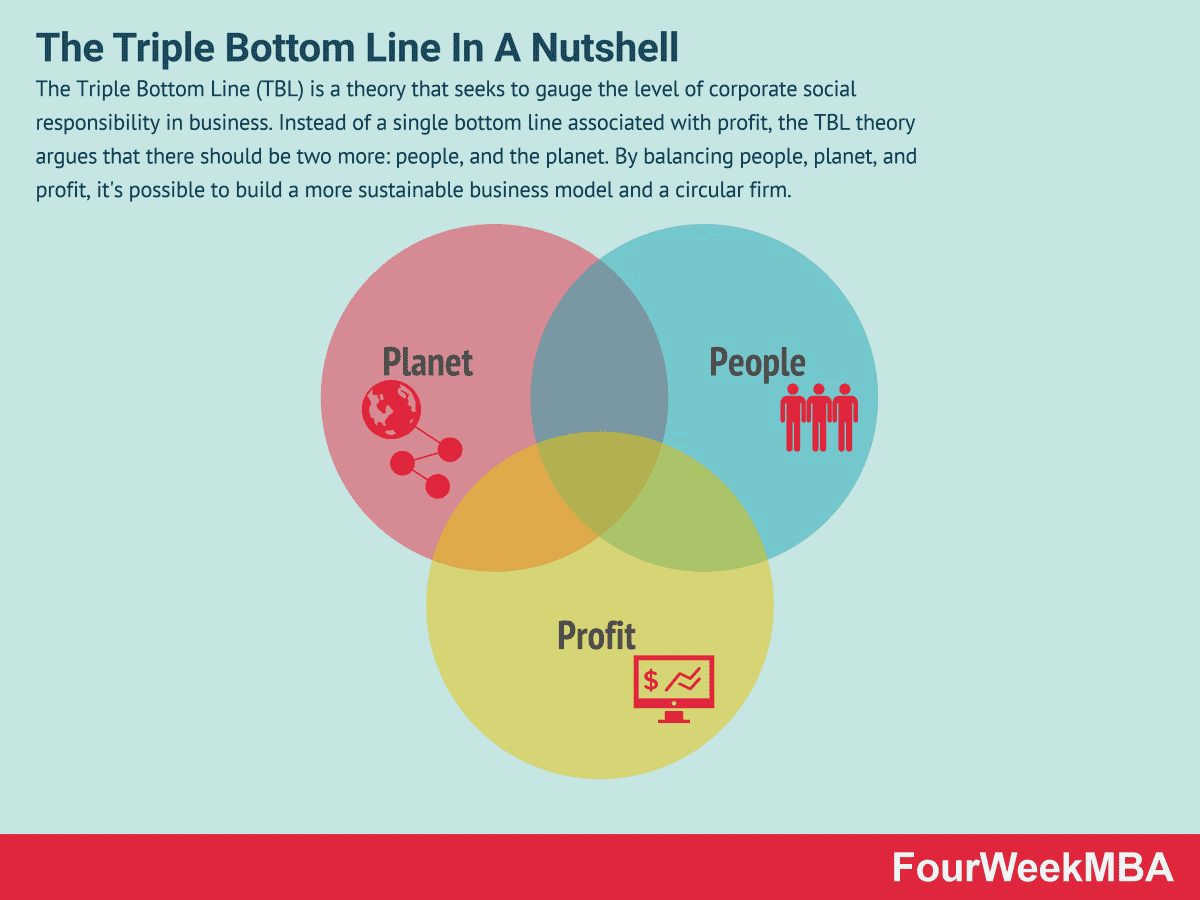
Overall, sustainable development is a holistic approach that considers the interconnectedness of economic, social, and environmental factors. By balancing profit, people, and planet, businesses can contribute to building a better society and unlocking the power of triple bottom line thinking. It is through this approach that we can create a more prosperous, equitable, and sustainable future for all.
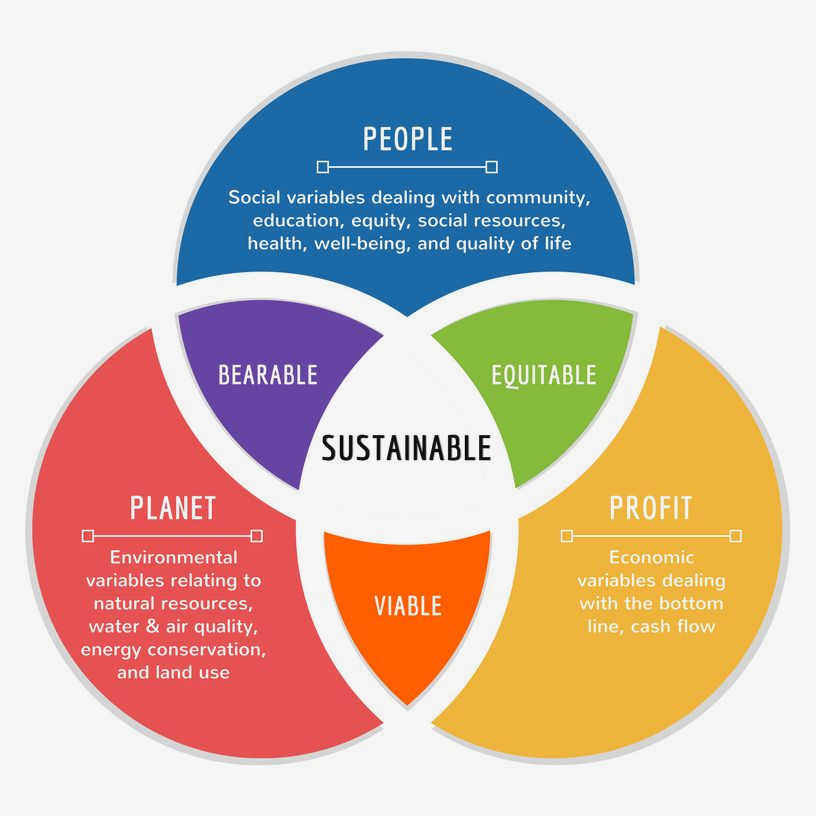
The Socially Responsible Business: Making a Positive Impact
In today’s society, the concept of social responsibility is becoming increasingly important for businesses. A socially responsible business is one that not only focuses on generating profit, but also on making a positive impact on society. These businesses recognize that their success is interdependent with the well-being of the communities in which they operate.
One way in which companies can make a positive impact is by adopting sustainable business practices. This entails minimizing their environmental footprint through initiatives such as using renewable energy sources, reducing waste, and implementing recycling programs. By doing so, businesses can contribute to the preservation of natural resources and help combat climate change.
Another aspect of social responsibility for businesses is promoting diversity and inclusion. By creating a workplace that values individuals from different backgrounds and perspectives, companies can foster innovation, creativity, and better decision making. This can be achieved through initiatives such as diversity training, mentoring programs, and creating inclusive policies and practices.
A socially responsible business also takes into consideration the well-being of its employees. This means offering fair wages, providing opportunities for professional development, and ensuring a safe and healthy work environment. By doing so, companies can not only attract and retain top talent, but also contribute to the overall well-being and quality of life of their employees.
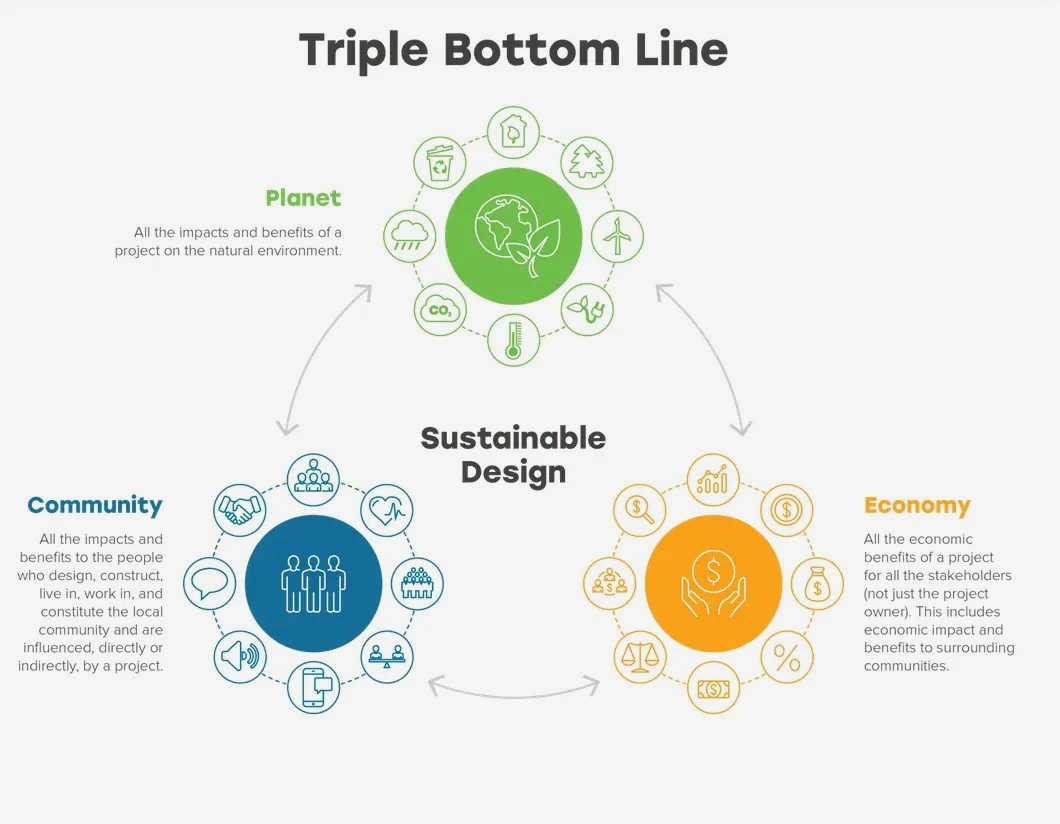
In addition to these internal initiatives, socially responsible businesses also play an important role in giving back to the community. This can be done through philanthropy, volunteering, or partnering with local organizations to support social causes. By actively engaging in community outreach, businesses can help address societal challenges and make a positive impact on the lives of others.
In conclusion, being a socially responsible business is not only beneficial for society, but also for the long-term success and sustainability of the company itself. By adopting sustainable practices, promoting diversity and inclusion, prioritizing employee well-being, and giving back to the community, businesses can create a positive impact and contribute to building a better society for all.
Environmental Stewardship: Preserving Our Planet for Future Generations
Environmental stewardship is the responsibility of individuals, businesses, and governments to take care of our planet and ensure its sustainability for future generations. It involves recognizing the importance of protecting natural resources, reducing pollution, and promoting sustainable practices.
1. Conservation Programs: One way to demonstrate environmental stewardship is by participating in conservation programs. These initiatives focus on preserving natural habitats, protecting endangered species, and promoting biodiversity. By donating to or volunteering for these programs, individuals can contribute to the protection of our planet’s ecosystems.
2. Renewable Energy: Another crucial aspect of environmental stewardship is the promotion and use of renewable energy sources. Transitioning from fossil fuels to renewable energy can help reduce greenhouse gas emissions and combat climate change. Investing in solar, wind, and hydroelectric power can create a sustainable energy future for generations to come.
3. Waste Management: Proper waste management is essential for environmental stewardship. Implementing recycling programs and reducing single-use plastics can minimize the negative impact of waste on our planet. Composting organic materials and encouraging sustainable consumption habits are also beneficial strategies.
4. Education and Awareness: Education plays a vital role in fostering environmental stewardship. By raising awareness about the importance of conservation and sustainable practices, individuals can become more conscientious consumers and advocates for environmental initiatives. Schools, workplaces, and communities should prioritize environmental education to ensure future generations are equipped with the knowledge to protect our planet.
5. Collaboration and Advocacy: Environmental stewardship requires collective action. Collaboration between individuals, businesses, and governments is crucial to address environmental challenges and find sustainable solutions. Advocacy for policies that support environmental protection, such as stricter regulations on pollution or the preservation of natural habitats, can also drive positive change.
In conclusion, environmental stewardship is a collective responsibility to preserve our planet for future generations. By participating in conservation programs, promoting renewable energy, practicing proper waste management, prioritizing education, and advocating for environmental protection, we can build a better society that prioritizes the health and sustainability of our planet.
Ethical Decision Making: Aligning Values and Actions
Understanding Ethical Decision Making
Ethical decision making is a process that involves aligning one’s values with their actions. It requires individuals to carefully consider the moral implications of their choices and to make decisions that are consistent with their personal ethics and beliefs.
At its core, ethical decision making involves evaluating the potential consequences of different courses of action and choosing the one that is most aligned with one’s values. This requires individuals to consider not only their own interests but also the impact of their decisions on others, as well as on society as a whole.
Factors influencing Ethical Decision Making
There are several factors that can influence ethical decision making. One of the most important is an individual’s personal values and beliefs. These provide the foundation for ethical decision making and guide individuals in determining what is right and wrong.
Another important factor is the ethical framework or code of conduct that individuals adhere to. This can be a set of principles or guidelines that help individuals navigate ethical dilemmas and make decisions that are in line with their organization’s values.
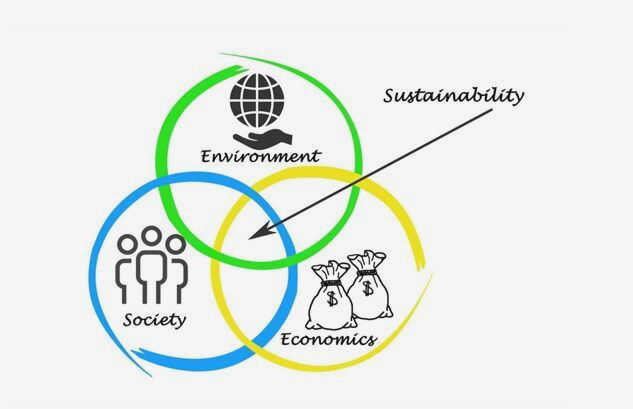
External factors, such as societal norms and cultural values, can also influence ethical decision making. These factors shape individuals’ perceptions of what is morally acceptable and can impact the choices they make.
The Importance of Ethical Decision Making
Ethical decision making is crucial for building a better society and unlocking the power of triple bottom line thinking. When individuals and organizations make ethical choices, they contribute to the overall well-being of society, as well as to their own success.
By aligning values and actions, ethical decision making helps to promote trust and integrity, both within organizations and in society at large. It fosters a culture of transparency and accountability, which is essential for sustainable development and long-term success.
Furthermore, ethical decision making ensures that individuals and organizations prioritize social and environmental responsibility, not just financial gain. It helps to create a more equitable and just society, where the needs of all stakeholders are considered and respected.
Social Innovation: Harnessing Creativity for Positive Change
Social innovation refers to the development and implementation of new ideas and approaches that address social challenges and create positive change in society. It involves thinking creatively and strategically to find innovative solutions to complex social problems.
One key aspect of social innovation is harnessing the power of creativity. By thinking outside the box and exploring alternative perspectives, individuals and organizations can come up with new and unique ideas to solve social problems. Creativity allows us to challenge traditional norms and assumptions, opening up new possibilities for positive change.
Importance of Social Innovation
Social innovation is crucial for building a better society because it helps us to overcome longstanding social issues in a sustainable and impactful way. By focusing on the triple bottom line – people, planet, and profit – social innovation seeks to create solutions that are not only economically viable but also socially and environmentally responsible.
Social innovation also promotes collaboration and cross-sector partnerships. It brings together individuals, organizations, and communities from different sectors and disciplines to work towards a common goal. By combining diverse perspectives and expertise, social innovation can leverage collective intelligence and resources, making it more effective and efficient in creating positive change.
Examples of Social Innovation
There are numerous examples of social innovation that have had a significant impact on society. For instance, microfinance is a social innovation that has revolutionized access to financial services for low-income individuals and communities. It provides small loans and financial products to empower people and help them out of poverty.
Another example is social entrepreneurship, which combines business principles with a social mission. Social entrepreneurs create innovative business models and products that address social issues while generating income. These ventures not only create positive change but also contribute to economic growth and job creation.
In conclusion, social innovation plays a vital role in harnessing creativity for positive change in society. By thinking creatively and strategically, we can develop innovative solutions to complex social challenges. Through collaboration and cross-sector partnerships, social innovation can address social issues in a sustainable and impactful way, ultimately building a better society for all.
Economic Equity: Promoting Fairness and Opportunity
Economic equity is a vital aspect of building a better society. It refers to the fair distribution of resources, opportunities, and wealth among individuals and communities. Promoting economic equity means ensuring that everyone has equal access to education, healthcare, housing, and employment opportunities, regardless of their background or socioeconomic status.
One way to promote economic equity is by implementing policies that address income inequality. This could include increasing the minimum wage, implementing progressive tax policies, and providing targeted financial assistance to low-income individuals and families. By narrowing the income gap, we can help create a more equitable society where everyone has a fair chance to succeed.
Another important aspect of economic equity is promoting workplace diversity and inclusion. This involves creating an environment where individuals from diverse backgrounds feel included, valued, and have equal opportunities for advancement. Companies can achieve this by implementing diversity and inclusion training programs, embracing flexible work arrangements, and ensuring equal pay for equal work.
Economic equity also requires addressing systemic barriers that prevent certain groups from accessing economic opportunities. This could involve providing affordable childcare, improving transportation infrastructure in underserved areas, and supporting the development of small businesses in low-income communities. By breaking down these barriers, we can empower individuals and communities to overcome socioeconomic challenges and achieve economic mobility.
In conclusion, promoting economic equity is crucial for building a better society. By ensuring fair distribution of resources and opportunities, we can create a more inclusive and just society where everyone has the chance to thrive. It requires implementing policies that address income inequality, promoting workplace diversity and inclusion, and addressing systemic barriers to economic opportunities. Together, these efforts can help create a society that promotes fairness and opportunity for all.
Corporate Accountability: Ensuring Transparency and Responsibility
Corporate accountability is the cornerstone of a well-functioning and ethical business environment. It refers to the responsibility of corporations to be transparent about their actions, decisions, and impact on society and the environment. By ensuring transparency and taking responsibility for their actions, companies can build trust with their stakeholders, including investors, employees, customers, and communities.
Transparency is crucial in corporate accountability as it allows stakeholders to have a clear understanding of a company’s practices, policies, and impacts. It involves providing accurate and timely information about a company’s financial performance, governance structure, social and environmental practices, and any potential risks. This transparency enables stakeholders to make informed decisions about their engagement with a company and hold it accountable for its actions.
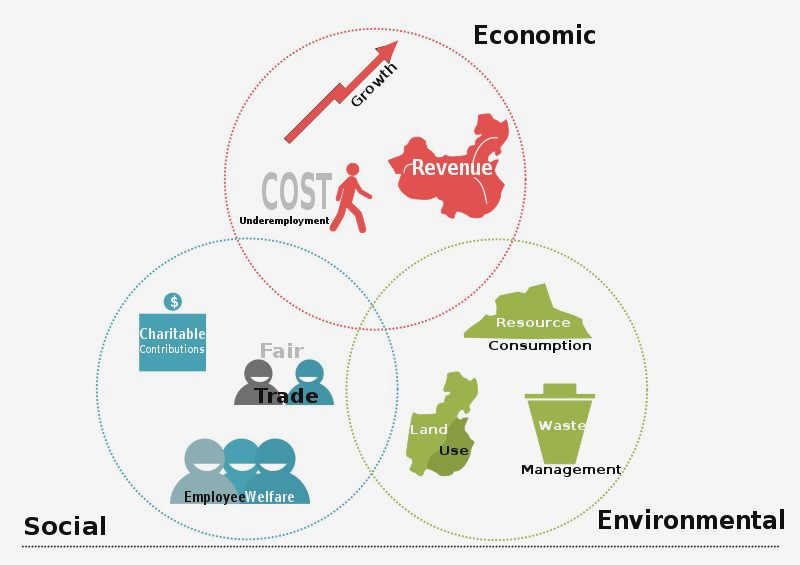
Corporate responsibility goes hand in hand with transparency. It involves companies taking actions that go beyond legal requirements to address social and environmental issues. Responsible corporations prioritize sustainability, fair business practices, and the well-being of all stakeholders. They integrate these principles into their strategies, operations, and decision-making processes. By doing so, they contribute to the long-term well-being of society and demonstrate a commitment to ethical behavior.
To ensure corporate accountability and foster transparency and responsibility, certain mechanisms are put in place. These may include creating and implementing robust corporate governance frameworks, conducting regular audits, establishing clear codes of conduct, enforcing ethical standards, and establishing mechanisms for reporting and addressing any concerns raised by stakeholders.
In conclusion, corporate accountability is essential in building a better society. By ensuring transparency and taking responsibility for their actions, companies can build trust, contribute to sustainable development, and make a positive impact on society and the environment.
Building Strong Communities: Fostering Collaboration and Engagement
Collaboration: Breaking Down Silos
In order to build strong communities, it is important to foster collaboration and break down the silos that often exist between different organizations and sectors. Collaboration enables different stakeholders, such as businesses, non-profit organizations, and government agencies, to work together towards common goals. By combining their resources, expertise, and perspectives, these stakeholders can achieve greater impact and make more meaningful contributions to their communities.
Engagement: Empowering Citizens
Engaging citizens is a crucial aspect of building strong communities. When individuals feel empowered and included in the decision-making processes that affect their lives, they are more likely to be invested in the community and work towards its improvement. Engagement can take many forms, such as community forums, public consultations, and volunteer opportunities. By creating spaces for dialogue and participation, communities can tap into the talents, knowledge, and ideas of their residents to address common challenges and achieve shared goals.
Partnerships: Leveraging Collective Strength
Building strong communities also involves forming partnerships that leverage the collective strength of different organizations and sectors. Partnerships can provide access to additional resources, expertise, and networks that individual organizations may not have on their own. By joining forces, organizations can pool their resources and work together towards common objectives, such as improving education, health, or sustainability. Partnerships can also help to bridge gaps, enhance coordination, and promote the sharing of best practices, creating a more cohesive and interconnected community.
Inclusive Decision-Making: Ensuring Equitable Representation
In order to foster collaboration and engagement, it is crucial to ensure that decision-making processes are inclusive and provide equitable representation for all members of the community. This means actively seeking out and including perspectives from diverse voices, including marginalized and underrepresented groups. By incorporating a variety of viewpoints and experiences, decision-making processes can be more comprehensive, responsive, and effective. Inclusive decision-making helps to build trust, promote transparency, and ensure that the needs and aspirations of the entire community are taken into account.
Sustainable Consumption: Making Informed Choices for a Brighter Future
Educating Consumers on Sustainable Choices
In order to create a brighter future, it is essential for consumers to be educated on the concept of sustainable consumption and the impact of their choices. By understanding the environmental, social, and economic consequences of their actions, individuals can make informed decisions that contribute to a sustainable society.
Choosing Ethical and Eco-friendly Products
One way to practice sustainable consumption is by choosing products that have been produced ethically and with minimal environmental impact. This includes opting for products that are made from recycled materials, have a low carbon footprint, and are produced in fair trade conditions. By supporting companies that prioritize sustainability, consumers can send a powerful message to the market and encourage more responsible practices.
Reducing Waste through Minimalism
Another important aspect of sustainable consumption is reducing waste. This can be achieved through adopting a minimalistic lifestyle, where individuals prioritize quality over quantity and refrain from excessive consumption. By only purchasing what is truly needed and focusing on long-lasting, durable items, consumers can minimize their contribution to waste accumulation and promote a more sustainable future.
Supporting Local and Organic Food
One area where sustainable consumption can have a significant impact is in the realm of food. By supporting local and organic food producers, consumers can reduce their carbon footprint, promote biodiversity, and contribute to a healthier environment. Additionally, choosing to buy seasonal and locally sourced ingredients can help to reduce the energy and resources required for transportation and storage.
Making a Difference through Consumer Activism
Consumers also have the power to make a difference through consumer activism. By demanding sustainable practices, supporting organizations that promote sustainability, and advocating for policy changes, consumers can influence the behavior of companies and governments. This collective action can help to transform industries and shape a future where sustainability is a priority.
In conclusion, sustainable consumption is crucial for creating a brighter future. By making informed choices, supporting ethical and eco-friendly products, reducing waste, supporting local and organic food, and engaging in consumer activism, individuals can contribute to building a more sustainable society for future generations.
Education for Sustainability: Empowering Individuals to Make a Difference
Education for sustainability plays a crucial role in empowering individuals to make a positive impact on our society and the environment. Through education, individuals gain knowledge, skills, and awareness that enable them to make informed decisions and take responsible actions towards a more sustainable world.
Knowledge: Education for sustainability provides individuals with a deep understanding of the interconnectedness between environmental, social, and economic systems. It equips them with knowledge about the challenges facing our planet and the potential solutions available. This knowledge empowers individuals to become informed advocates for sustainable practices in their personal and professional lives.
Skills: Alongside knowledge, education for sustainability fosters a range of practical skills that are essential for creating positive change. These skills may include critical thinking, problem-solving, collaboration, and communication. By developing these skills, individuals are better equipped to address complex sustainability issues and implement effective solutions.
Awareness: Education for sustainability also promotes a heightened awareness of the impact of individual and collective actions on the environment and society. It creates a sense of responsibility and encourages individuals to question their own behaviors and consumption patterns. This increased awareness empowers individuals to make more conscious choices and adopt sustainable habits in their daily lives.
Call to Action: Education for sustainability not only empowers individuals to make a difference but also inspires them to take action. By providing a holistic understanding of sustainability, it motivates individuals to actively engage in environmental and social initiatives. It encourages them to become agents of change, promoting sustainable practices in their communities and influencing policy decisions at local and global levels.
Impact: The collective efforts of individuals educated in sustainability have the potential to create a significant impact on our society and the environment. By adopting sustainable practices and influencing others to do the same, individuals can contribute to the preservation of natural resources, reduction of greenhouse gas emissions, and improvement of social equity. Education for sustainability empowers individuals to be part of a larger movement towards a better, more sustainable future.





